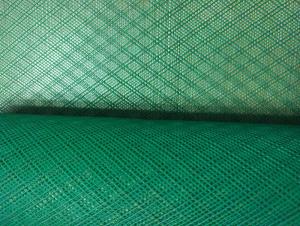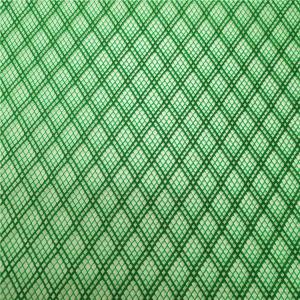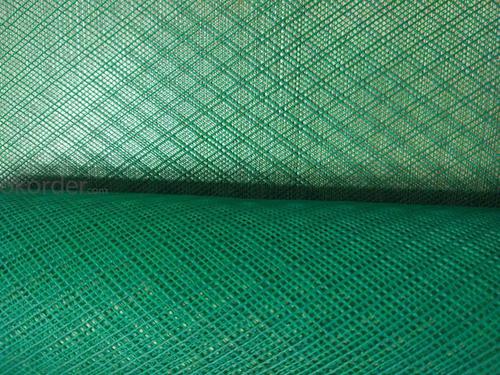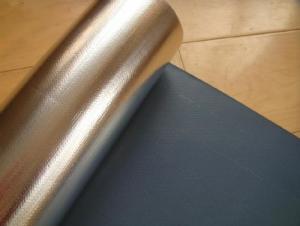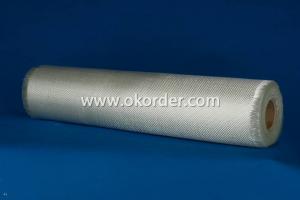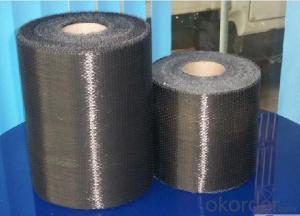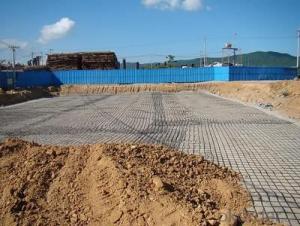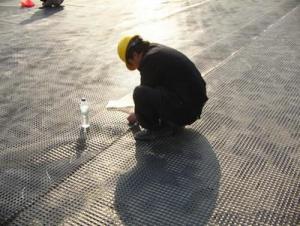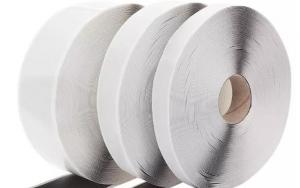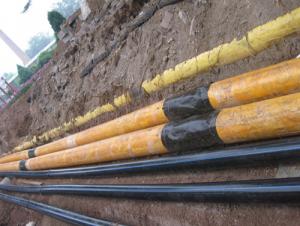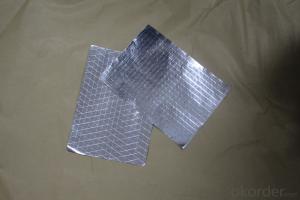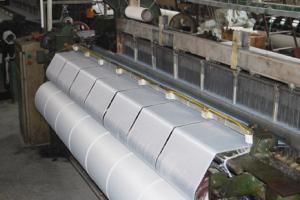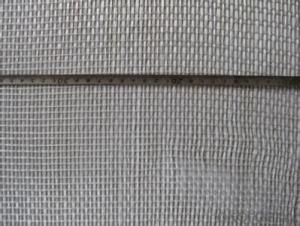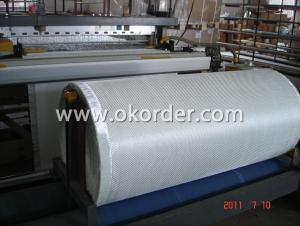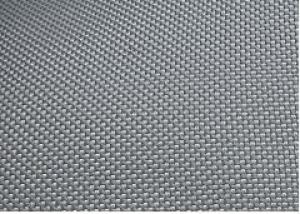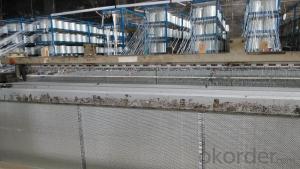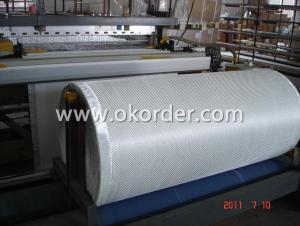Flow Media-vacuum infusion process fiberglass
- Loading Port:
- Shanghai
- Payment Terms:
- TT or LC
- Min Order Qty:
- 500 m²
- Supply Capability:
- 1000000 m²/month
OKorder Service Pledge
OKorder Financial Service
You Might Also Like
Flow Media
Product Description
Flow Media is a kind of resin drainage medium with low cost, which is widely used in vacuum infusion molding process. It can make resin permeate into any part of the products evenly and quickly. According to the different molding technology of products, it can be divided into two types: weaving type and extruding type. It has been proved that, extruding type can make workers easy to tile them without any curl. While regarding the weaving type, it is good for the flowing of air and resin because of its three-dimensional weaving structure. The demoulding effect is good and the cost is lower. Flow media mesh can be cut into any shapes. It is suitable for different shapes of products, with low consumption and good economic performance. It is widely applied to aerospace, wind-power blades, shipbuilding, racing, automotive, sports equipments and such composite manufacture industries.
Technique Data
Material: | PE |
Area Weight: | 110 g/m2 or 230g/m2 |
Width: | 120 cm |
Pattern: | Three-dimensional grid-like |
Temperature resistance: | 120℃ |
Color: | green |
Roll length: | 100 m |
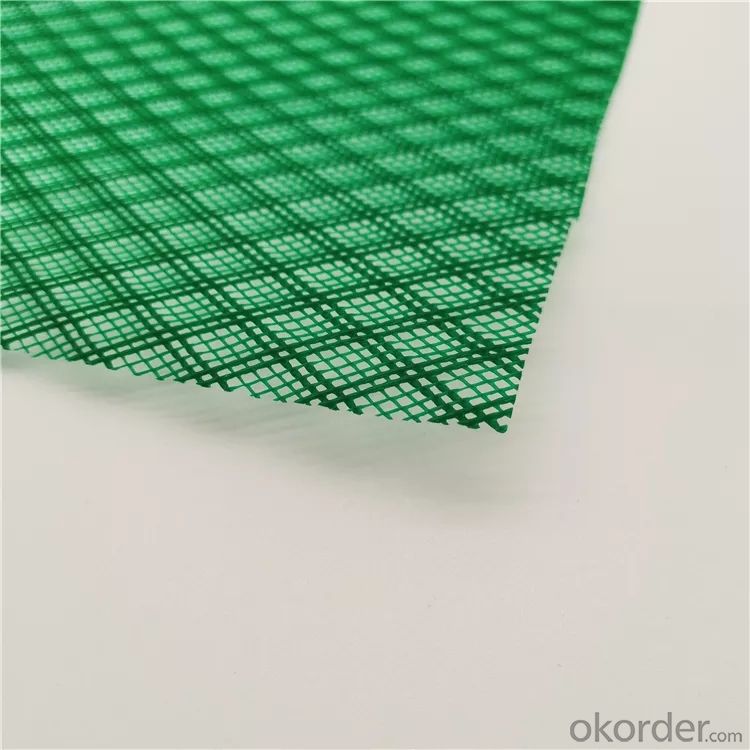
- Q: Can fiberglass fabric be used for reinforcement in concrete pipes?
- Yes, fiberglass fabric can be used for reinforcement in concrete pipes. It provides high tensile strength, corrosion resistance, and durability, making it an effective alternative to traditional steel reinforcement in concrete pipes. Additionally, fiberglass fabric is lightweight and easy to handle, making it a preferred choice for reinforcing concrete pipes.
- Q: Is fiberglass fabric recyclable?
- Indeed, fiberglass fabric can be recycled. The formation of fiberglass involves intertwining slender glass strands to form a fabric. Although it does not decompose naturally, it can be recycled through the process of melting it down and incorporating it into the production of fresh fiberglass goods. The recycling procedure entails grinding or shredding the fabric into tiny fragments, subsequently subjecting it to high temperatures to liquefy the glass fibers. Following this, the molten glass is molded into new products or employed as filler material. By recycling fiberglass fabric, waste is minimized, and resources are conserved, thereby rendering it a sustainable choice for the environment.
- Q: Is fiberglass fabric resistant to pests and insects?
- Yes, fiberglass fabric is generally resistant to pests and insects. The nature of fiberglass, being made of woven glass fibers, makes it less appealing to pests and insects compared to other materials like cotton or wool. Fiberglass fabric is not a food source for pests, and its smooth and non-absorbent surface makes it less likely for insects to establish a habitat or lay eggs. However, it is important to note that while fiberglass fabric may be resistant to pests and insects, it is not completely immune. In rare cases, certain types of insects or pests may still be able to cause damage to fiberglass fabric, especially if the fabric is already compromised or damaged. Overall, fiberglass fabric is a good choice for those looking for a material that is generally resistant to pests and insects.
- Q: Are there any limitations or drawbacks to using fiberglass fabrics?
- Yes, there are limitations and drawbacks to using fiberglass fabrics. One limitation is that fiberglass fabrics can be relatively expensive compared to other fabric materials. This can make them less accessible for certain budgets or projects that require a larger quantity of fabric. Another limitation is that fiberglass fabrics can be difficult to work with, especially for those who do not have experience handling or manipulating this type of fabric. Fiberglass fibers can be sharp and irritating to the skin, and precautions must be taken to prevent inhalation of the fibers, which can cause respiratory issues. Additionally, fiberglass fabrics have a higher melting point compared to other fabrics, making them unsuitable for applications that involve exposure to high temperatures. They can also degrade when exposed to UV radiation, causing them to become brittle and lose their strength over time. Furthermore, fiberglass fabrics are not as flexible as natural or synthetic fabrics, which can limit their use in applications where drapeability and stretch are important factors. Finally, fiberglass fabrics are not biodegradable and can pose environmental concerns when disposed of improperly. The recycling process for fiberglass fabrics can be challenging and not widely available, leading to potential waste management issues. Overall, while fiberglass fabrics have many advantages such as high strength, resistance to chemicals, and fire-retardant properties, it is important to consider these limitations and drawbacks before deciding to use them in a particular application.
- Q: Is fiberglass fabric resistant to moisture absorption?
- Yes, fiberglass fabric is highly resistant to moisture absorption.
- Q: How is fiberglass fabric stored and transported?
- To ensure the protection and preservation of fiberglass fabric, it is customary to store and transport it in a specific manner. The fabric should be kept in a dry and temperature-controlled setting to prevent moisture absorption and the growth of mold. It is common practice to store the fabric rolls vertically on pallets or racks to avoid unnecessary pressure that could cause deformation or damage. Regarding transportation, fiberglass fabric is typically shipped in rolls. These rolls are often wrapped in protective plastic or placed in bags to shield them from dust, dirt, and potential water damage during transit. Additionally, they may be placed in sturdy cardboard boxes or on pallets to provide extra support and prevent any shifting or movement during transportation. It is crucial to handle the fabric rolls with care during transit to prevent tears or damage. This involves securely fastening the rolls in the transportation vehicle using straps or other securing mechanisms to prevent movement and potential harm. In summary, proper storage and transportation of fiberglass fabric involve maintaining an appropriate environment and taking precautions to safeguard the fabric from external elements and physical stress. By adhering to these guidelines, the integrity and quality of the fiberglass fabric can be preserved, ensuring it reaches its destination in optimal condition.
- Q: Can fiberglass fabric be used for insulation in construction projects?
- Yes, fiberglass fabric can be used for insulation in construction projects. It is commonly used as an insulating material due to its high thermal resistance and fire resistance properties. It is also lightweight and easy to install, making it a popular choice for insulating walls, roofs, and other areas in construction.
- Q: Is fiberglass fabric suitable for use in automotive upholstery?
- Yes, fiberglass fabric is suitable for use in automotive upholstery. It is highly durable, resistant to wear and tear, and offers excellent insulation properties. Additionally, it is lightweight and can be easily moldable, making it a popular choice for automotive applications.
- Q: How does fiberglass fabric handle moisture and humidity?
- Fiberglass fabric is highly resistant to moisture and humidity due to its inherent properties. Unlike natural fibers such as cotton or wool, fiberglass is hydrophobic, meaning it repels water and does not readily absorb moisture. This feature allows the fabric to resist mold and mildew growth, making it suitable for use in humid environments. Furthermore, fiberglass fabric does not retain moisture, which prevents it from becoming heavy or sagging when exposed to water or high humidity. This characteristic is especially beneficial in applications where the fabric needs to maintain its strength and shape despite moisture exposure. Additionally, fiberglass fabric is known for its dimensional stability, meaning it does not significantly expand or contract when subjected to changes in humidity levels. This stability ensures that the fabric retains its original shape and size under varying moisture conditions, making it a reliable choice for applications that require consistent performance. Overall, fiberglass fabric's resistance to moisture and humidity makes it a durable and reliable material for a wide range of applications, including boat covers, outdoor furniture, and industrial insulation.
- Q: How does fiberglass fabric perform in high-vibration environments?
- Due to its unique properties, fiberglass fabric is highly effective in high-vibration environments. It possesses inherent stiffness and a high strength-to-weight ratio, making it resistant to vibrations and mechanical stress. When exposed to vibrations, fiberglass fabric efficiently absorbs and disperses the energy, minimizing potential damage and reducing impact. One of the main advantages of fiberglass fabric is its excellent ability to dampen vibrations. It can absorb and dampen vibrations, preventing them from spreading and intensifying throughout the structure. This characteristic is especially important in high-vibration environments, as excessive oscillations can lead to structural fatigue, decreased performance, or even failure. Furthermore, fiberglass fabric is known for its exceptional durability and resistance to corrosion, enhancing its performance in high-vibration environments. It can withstand prolonged exposure to intense vibrations without experiencing degradation or loss of mechanical properties. Additionally, fiberglass fabric offers versatility in design and application. It can be easily molded or woven into various shapes and sizes to meet specific requirements in high-vibration environments. Whether used as a reinforcement material in composites or as a standalone fabric, fiberglass provides reliable and long-lasting performance in demanding conditions. In conclusion, fiberglass fabric is an ideal choice for high-vibration environments due to its stiffness, strength, damping properties, durability, and resistance to corrosion. Its ability to absorb and dissipate vibrations, combined with its design versatility, makes it well-suited for applications where mitigating vibration-related issues is crucial.
Send your message to us
Flow Media-vacuum infusion process fiberglass
- Loading Port:
- Shanghai
- Payment Terms:
- TT or LC
- Min Order Qty:
- 500 m²
- Supply Capability:
- 1000000 m²/month
OKorder Service Pledge
OKorder Financial Service
Similar products
Hot products
Hot Searches
Related keywords
